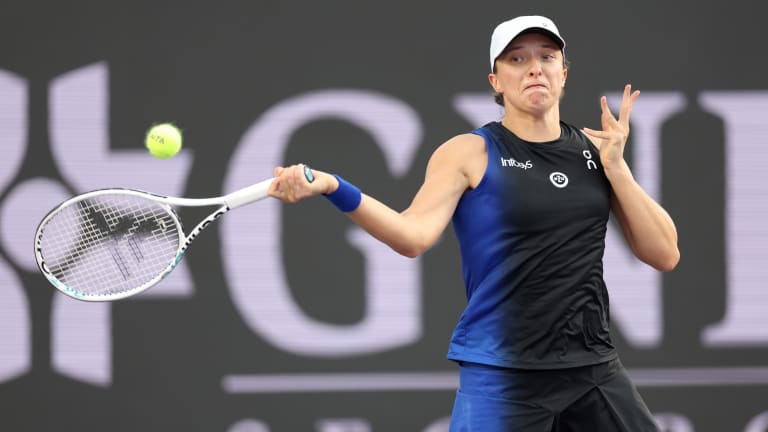WTA Finals
The aura of Iga: On Swiatek’s 2022-style run to the WTA Finals title, and the year-end No. 1 ranking
By Nov 07, 2023WTA Finals
How Coco Gauff pulled off a miracle marathon win over Zheng Qinwen in Riyadh
By Nov 09, 2024WTA Finals
Coco Gauff rallies against Zheng Qinwen for first WTA Finals title in Riyadh
By Nov 09, 2024WTA Finals
WTA Finals Preview: Coco Gauff, Zheng Qinwen face off for first year-end crown in Riyadh
By Nov 09, 2024WTA Finals
Coco Gauff solves Aryna Sabalenka for first final at WTA Finals, will face Zheng Qinwen for Riyadh title
By Nov 08, 2024WTA Finals
Zheng Qinwen holds off Barbora Krejcikova to reach WTA Finals final
By Nov 08, 2024WTA Finals
WTA Finals Preview: Aryna Sabalenka vs. Coco Gauff leads semifinal slate
By Nov 07, 2024WTA Finals
Defending champion Iga Swiatek eliminated from WTA Finals despite 2-1 record, win in last match
By Nov 07, 2024WTA Finals
Barbora Krejcikova surges into WTA Finals semis, defeats Coco Gauff, eliminates Iga Swiatek
By Nov 07, 2024WTA Finals
Into WTA Finals semifinals, Zheng Qinwen hopes to match Serena Williams' 2012 feat
By Nov 06, 2024WTA Finals
The aura of Iga: On Swiatek’s 2022-style run to the WTA Finals title, and the year-end No. 1 ranking
When she set herself free from expectations, her talent took over again.
Published Nov 07, 2023
Advertising

In Beijing, Swiatek found out that even when she didn’t go all-out for winners, she still had the shots to dictate rallies against most of her opponents. You could see that in the Cancun final as well.
© Getty Images
Advertising

With the win, Swiatek also got her No. 1 ranking back, just in time to claim her second straight season at the top.
© 2023 Robert Prange